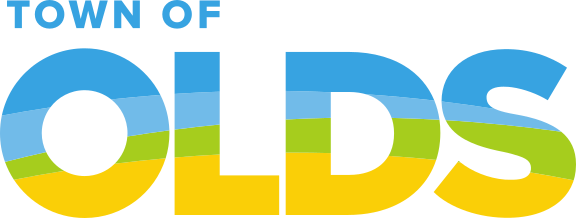Fair Trade Town
Olds is Proud to be a Fair Trade Town

Criteria to receive this designation:
-
a community steering committee needed to be created;
-
a certain percentage of businesses in Olds had to be selling or serving Fairtrade certified products;
-
Town Council had to support the initiative; and
-
the steering committee had to commit to holding events in Olds that created awareness of fair trade and Fairtrade certification, some of which received media coverage.
What Is Fair Trade?
Fair trade is trade that creates partnerships between Northern hemisphere consumers and producers/artisans in the global south, that enables trade based on principles of dialogue, transparency and respect, something that is usually not the case in conventional trade. Fair trade supports the development of thriving farmer and worker communities who then have more control over their futures and in protecting the environment in which they live and work.
There are many companies who claim their products are fair trade. If products are not certified by a robust certifier you must do your own research or take their word for what they say. Reliable certifiers include: Fairtrade International or Small Producers who certify food items, sports balls, gold and cosmetics and the Fair Trade Federation and the World Fair Trade Organization who certify handmade items.
What is Fairtrade International?
Fairtrade International is the global, gold standard, producer-driven fair trade system. It works with farmers in the global south - usually members of democratic cooperatives - ensuring these producers receive a living wage and there is no child exploitation or slavery involved in crop production. There is gender equity and all food grown under the Fairtrade certification is grown in a sustainable way, often organically. Third party auditing ensures these standards are being met. Fairtrade foods we cannot grow locally but have come to depend on. Foods that include coffee, tea, chocolate, bananas, avocados and spices.
Why Is Fairtrade Important?
Fairtrade is a global system that strives to make the global trading system fair. Many people in the global south live in a cycle of poverty because of unfair prices for the food they grow or the handcrafted items they produce, children are often used as exploited or slave labour and products are produced in a way that degrades the environment. Because 51% of Fairtrade International are producers, producers have a say in the decisions that affect them. The third party auditing built into the system sets this certifier ahead of many others. Consumers and retailers can be satisfied that the supply chains in the products they are selling are clean; goods have been ethically produced both socially and environmentally. A Globescan survey identifies that 50% of Canadians say the Fairtrade mark reflects their personal values and 55% of consumers say the Fairtrade mark helps them choose items that have been responsibly produced.
Does Buying Fairtrade Undermine Our Local Producers?
No, in fact supporting Fairtrade compliments shopping local. Local is always the best choice, but Fairtrade supports farmers who are producing foods that we cannot produce locally, but have come to rely on, foods like coffee, bananas, nuts, spices, tea, sugar and chocolate. One might argue the case of sugar and our sugar beet farmers, however, sugar from Alberta sugar beets is turned into liquid sugar and used in items like pop and processed breakfast cereals. All the sugar we buy at the store is made from cane sugar imported from places like South and Central America.
Most people who support fair trade are also staunch supporters of shopping local. In fact, not supporting fair trade can in fact put our local producers in a less competitive situation, for example, if we are not paying farmers in Mexico a fair price for their avocados, we are not paying a fair price for their cucumbers and tomatoes. Our local farmers are directly trying to compete with this unfair price.
Robust Certifications That Are Endorsed By The Canadian Fair Trade Network:
- Small Producers
- Fairtrade International
- Fair Trade Federation
- World Fair Trade Organization
Contact Us
Town of Olds
3501 70 Avenue
Olds, Alberta, Canada
T4H 1L7
Phone: 403-556-6981
Email: admin@olds.ca
Sign up to receive News & Notices
Stay up to date on the city's activities, events, programs and operations by subscribing to our eNewsletters.




